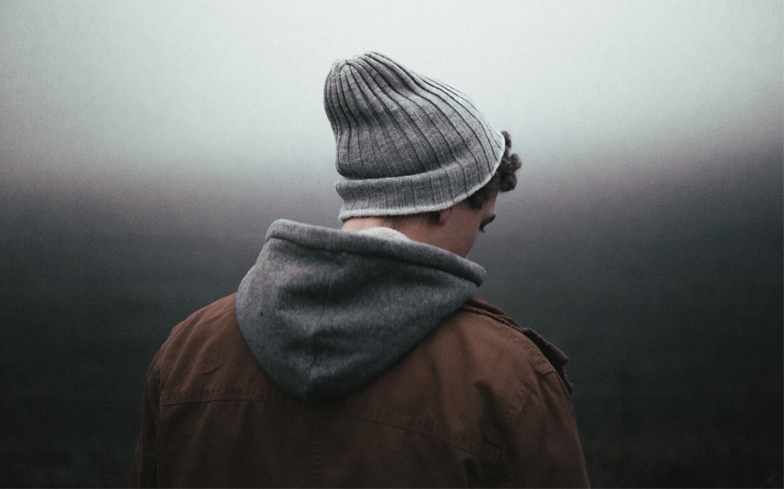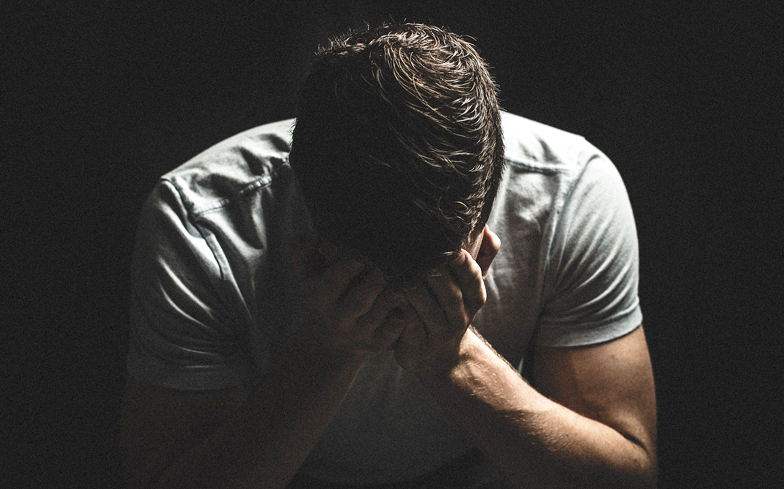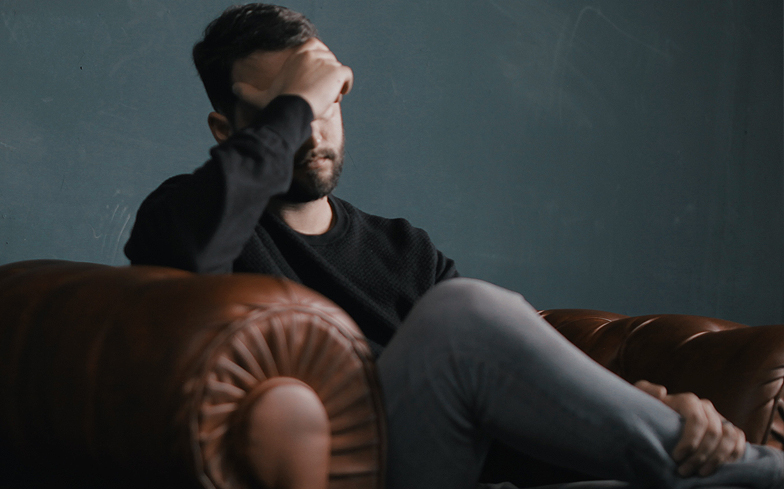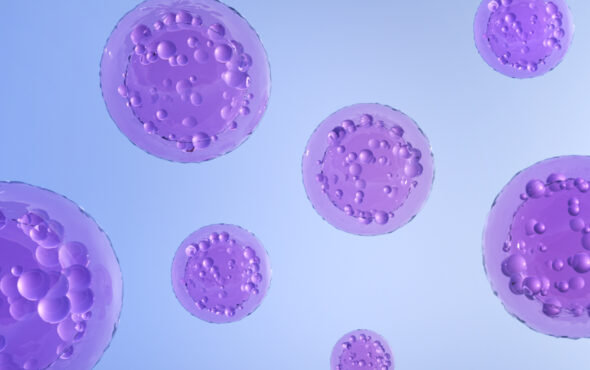
Nothing causes a person to feel more alone than the uphill battle of a life plagued by mental illness. However, despite feelings of isolation that may torment us when in the darkest grips of anxiety – one thing’s for sure: you’re certainly not alone. When it comes to this issue, none of us is.
The snow-balling epidemic of mental illness – and anxiety in particular – has reached unprecedented levels in the United Kingdom. Mirroring a global trend, the statistics on our shores are staggering – and show no signs of slowing down any time soon. Such grim reading might not be of much consolation to anyone in the midst of their suffering, but perhaps viewing this phenomenon as a collective issue is a first step on the way to solving it, at least.
But how did this problem spiral so far out of control? Last year it was revealed that around 34 million people in this country have experienced some variety mental health issue, ranging from anxiety and depression to panic attacks and addiction. This study, carried out by the UK’s Mental Health Foundation, reported that two out of three adults have fallen victim to these often-misunderstood illnesses, as well as other disorders such as OCD (Obsessive Compulsive Disorder) and psychosis, with younger people increasingly the most impacted, explaining why prescriptions of drugs like antidepressants, Beta blockers, and Valium – to name a few – are growing rapidly year on year.
As is so often the case with social issues, the numbers reflected within the LGBTQ community are even higher – and are rising at deeply disturbing rates. High profile names in the gay community such as Will Young and Stephen Fry have spoken out about their own experiences with anxiety and depression, reflecting the tough reality for millions of us right now. The phrase ‘manxiety’ was created because men are generally seen as more prone to bottling up their emotions than women – and is used to describe the unique male relationship with this problem.
Stephen Buckley, from mental health charity Mind, has said: “Women may talk more openly about their feelings and turn to friends and family for support, whereas men may find other ways to unwind, like watching TV or using drugs or alcohol. The idea that ‘real men don’t cry’ can stop men accessing help.”

Related: Only a third of men would talk openly about their mental health
As gay men, we might be less likely to ‘bottle up’ feelings than heterosexual males, yet this seemingly isn’t helping us; a research project at London’s University College hospital found “significantly higher” rates of mental illness among gay men than their straight peers.
Visibility is on the rise, and mental health is fortunately becoming less ‘taboo’ or stigmatised in society. But is this doing anything to treat the core of the problem? It begs the question: are more of us suffering from mental health issues, or are we just talking more openly about it now – whereas before we’d have suffered in silence? These are tough questions – and make no mistake – there are no easy answers.
Still, considering the progress we’ve made when it comes to HIV and equal rights in recent decades, it’s clear that our community doesn’t back down from the intimidating challenges. In 2018, and beyond, will the rise of manxiety prove to be the biggest challenge of our time? The faceless enemy that, perhaps, no one even saw coming? And – an even bleaker question to consider – when the battle itself demands so much of us, is it a battle we can ever truly win?
Renowned holistic psychotherapist Dirk Stikker speaks to Gay Times to shine some light on the darkest of issues, and why the gay community in particular needs to tackle this issue head on – with the first step being understanding why these feelings even exist.
“Anxiety is a way of trying to protect you from harm,” he explains. “But it can be paralysing. It keeps you safe by preventing you from going out into the bad, dangerous and judgmental world.”
Which is why simply trying to ignore it when it creeps in is not the answer.
“When you do experience anxiety, talk to it,” says Dirk – the man behind the Mastermind 2.0 programme. “Say you understand it wants to protect you and say thank you for protecting me. It is about understanding anxiety as well-meaning – but often over-protective.”
It is only in excess that the feeling of anxiety starts to become damaging and counter-productive. Signs that your anxiety levels have gone from manageable to damaging in terms of your mental health are varied, and difficult to clarify. Symptoms include: dizziness, exhaustion, excessive sweating, dry mouth, muscle aches, headaches, heart palpitations, shortness of breath, nausea and a churning in the pit of your stomach. All of us are likely to have experienced most, if not all of these, on a regular basis. But seeing as none of these symptoms, in isolation, are unusual in day-to-day life, it’s then the accumulation of several of them – becoming your normal state – that suggests your anxiety might be out of control and becoming detrimental to your health.
As mentioned, members of the LGBTQ community are more likely to find ourselves suffering with these symptoms than our straight counterparts. But why is this?
Dirk says: “We know from research and anecdotal evidence that this community is more vulnerable to mental health issues.

“As a minority group, the LGBTQ community is marginalised, excluded and discriminated against. When you don’t feel safe, and are not accepted for who you are, and are unsure as to how others will react, that can cause insecurity which all leads to great anxiety and stress.”
According to Dirk, we are often bombarded with “external and internal existential issues” from a young age, and when exposed to these on a daily basis, this helps to explain the increase in anxiety and stress rates we face.
“The process of acceptance takes place both outside the individual as well as within – including internal conflicts,” he tells Gay Times. “The male gender role is fixed and rigid. Very generally speaking, young gay men are afraid, especially regarding their fathers and how they will react. Consciously or subconsciously, a gay man experiences a sense of ‘disloyalty’, and ‘betrayal’ towards the father and fears that he is a tremendous disappointment.”
These feelings can often be traced back to the moment that changes the life of every gay man: coming out.
Dirk says: “The process leading up to coming out is filled with anxiety and stress – so much uncertainty, and ‘not knowing.’ It’s this enormous internal conflict of wanting to be true to yourself and the fear of what that will bring.”
There are a million different ways that we as gay men try to cope or escape from this early turmoil. Even if the reaction was positive – or better than expected – the lasting effects of this emotional trauma can endure, as popular books like The Velvet Rage: Overcoming the Pain of Growing Up Gay in a Straight Man’s World by Alan Downs have detailed in the past.
Considering that alcoholism and drug addiction remain higher in the gay community than outside it, there’s no denying that many of us turn to substances to cope with this.
“The partying lifestyle could also contribute to this anxiety and then they feed off each other,” says Dirk. “When you feel under a great deal of stress, a lot of the time you want to let off steam, have a good time and change reality for a while. However, we know that excessive alcohol or drug use not only exacerbates anxiety, stress and depression, but can also cause it.”
The habits we use to escape reality are often making our reality harder to cope with, resulting in a harmful Catch 22.
Dirk says: “These tendencies increase the risk among other of paranoia and morbid jealousy. When intoxicated you also tend to engage in more risky behavior, and put yourself and others at risk. These are all the perfect ingredients for adding anxiety and stress.”
The notion that excessive drinking can be harmful – both physically and mentally – is hardly new, but anxiety-triggering activities don’t just come in a bottle; they also find their way into our lives via less obvious packages. Take your phone, for example. In a world where we act like our mobile devices are as vital to our daily life as oxygen – are we inadvertently giving anxiety full time access to our brains?

Dirks believes so. He says: “Technology has advanced so much, speeding up so many aspects in life that there seems to be less time now. Everything has to go fast and our minds have become more impatient. We are bombarded with information 24/7.”
Although this might be useful when wanting to check out who was eliminated on Drag Race the previous night, or keeping up with work emails, there are, inevitably, downsides.
“Because of this, quality human contact has become less and less in our society,” Dirk says. “We as people are social beings and thrive on that, but now technology gets in the way. We barely know our neighbours. People become more disconnected with themselves and others.”
The communication industry is, at its core, about bringing people together, but evidently it might just be the biggest force that’s driving us apart. Of course, anyone with a Facebook page will know, social media is practically a feeding ground for manxiety, and undoubtedly plays a “massive role” in this issue, according to Dirk.
“We get more and more young adults in our programs that are affected in different ways by social media and internet,” he shares. “From self-image through to addiction, unrealistic expectations and, again, disconnection. There is less and less of a need to go out because we can satisfy our need for connection through theses outlets, but we people are social beings and need the close physical contact.”
But short of enforcing Twitter and Facebook to carry health warnings like cigarettes, what can be done?
“We have to tackle this on different levels with governments, local communities and local services, schools, at home and on an individual level,” he says. “We have to educate the youngsters and work with adults as well. Start with yourself and those closest to you.”
For many young people struggling – teen suicides – this means going on prescription drugs to help medically control the anxiety, stress and depression affecting them, leading to widespread criticism that doctors are being too liberal with prescriptions. High profile critics like Piers Morgan recklessly cause controversy by bluntly exclaiming that we need to ‘man up,’ as he did last May following the release of the findings made by the UK’s Mental Health Foundation. Dirk firmly believes that medicine has a place – but only when symptoms warrant it, and should ideally be short-term and given in conjunction with discussion therapy.
He says: “I think medication is given too quickly and too easily without dealing with the root causes. When you only work on the symptom, whether that is in the form of discussion therapy or through medication, then at best nothing changes and, at worst, it creates dependency.”
But as easy as it can be to place the blame of our emotions externally – on our sexuality, an increasingly internet-crazed world or those around us – the first step will always be the tough task of accepting some of the responsibility, and studying the ways in which we might be causing our own anxiety without even knowing.
Dirk says: “There are so many ways we contribute to our own anxiety. Lifestyle habits, what we eat and drink, and putting ourselves in anxiety-provoking situations. Not setting boundaries. Poor time management and planning, or taking on too many things. We can talk ourselves into anxiety and stress by taking a bad past experience and projecting that into the future, not living in the ‘here and now.’ The list is really endless and is different for every person.”
Through his Mastermind 2.0 programme, Dirk and his team offer a 5-day stress relief holistic program that provides exclusive ‘Addictions and Psychological Wellbeing Programs’ in the UK, Greece, (Corfu), and Thailand using a unique method blending biological, psychological and social approaches to clear symptoms, uncover and heal related issues and root causes.
As this issue continues to grow, it’s crucial people understand that there’s no shame in seeking help to control anxiety, stress and depression. Making small changes in your day-to-day life can lead to major positive results. Loving and accepting ourselves may sound cheesy, but in today’s world these are goals that are easier said than done. And facing a challenge head on? Well, sorry Piers, but that’s what takes a real man.
Tips for reducing manxiety:
– Cutting down alcohol/substances: Using drink or drugs as an emotional crutch can provide short-term relief, but is more likely to cause long-term damage.
– Sleep: Are you sleeping enough? Not getting enough hours of shut-eye can increase stress and anxiety. Really take the time to figure out how much sleep your body and mind actually needs and then make sure you’re getting it.
– Diet/exercise: A healthy body goes hand-in-hand with a healthy mind.
– Technology detox: If you’re glued to your phone, try and take more breaks from it, especially in the hours before sleep – as using electronic devices is proven to affect the quality of sleep.



